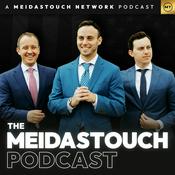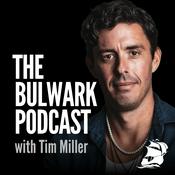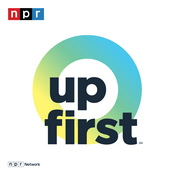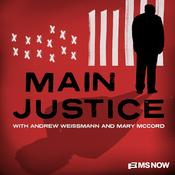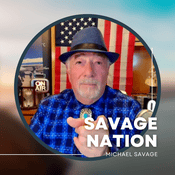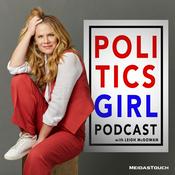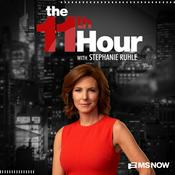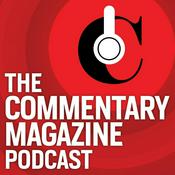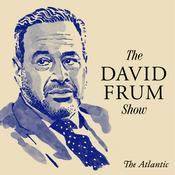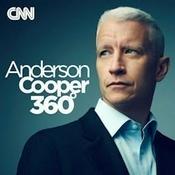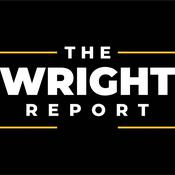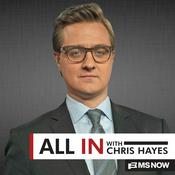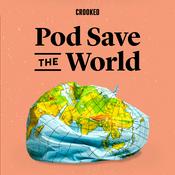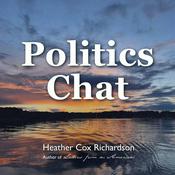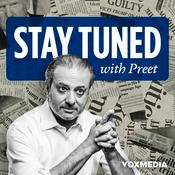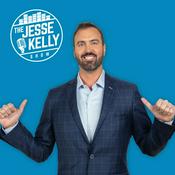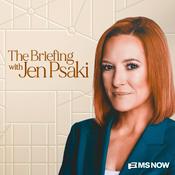76 episodes
A Conversation w A Group of Black Women - From Public Health, Medicine & MAHA - About Health & Mistrust In America
2/19/2026 | 1h 36 mins.Today, we bring together a group of Black women with a wide range of perspectives — from mainstream public health and medicine to MAHA and everything in between — for a candid conversation about their health, their lived experiences, and their trust, or lack of it, in the systems designed to heal us.
Black women face higher rates of diabetes and stroke, more aggressive cancers, and far riskier pregnancies. And yet, time and again, they say the medical system meant to care for them has too often failed them.
So what do they see as their most urgent needs? How do they view this administration — Kennedy, MAHA, the push against ultra-processed foods, and the backlash against DEI? And ultimately, do they believe these changes will improve their health, or once again leave them on the margins?
And riding shotgun with us today is a friend of the pod, MacKenzie Isaac, who is passionate about the health issues affecting the Black community.
Hosts:
Brinda Adhikari
Tom Johnson
Maggie Bartlett
Dr. Mark Abdelmalek
Guest host: Mackenzie Isaac, health educator, getting phD in bioethics from Oxford University
Guests:
Dr. Keisha Callins, OB/GYN, health educator
Renee Mitchell, founder Breaking the Cycle Drop Corp; Kennedy & MAHA supporter
Denise Octavia Smith, community health worker and inaugaral executive director
Alexandra Thompson, public health policy analyst
Tribeca Cannon, community health worker
Yesenia Muhammad, lawyer; Kennedy & supporter
Thanks for listening! If you like us, please leave a review, rate us, and please subscribe!
Got questions? Comments? We'd love to hear from you! Email us at [email protected]A Conversation w Invivyd's Marc Elia + Dr. Michael Mina: On Monoclonal Antibodies, Treatment v Prevention, and Giving Patients Options
2/12/2026 | 1h 6 mins.You might remember monoclonal antibodies from the height of the pandemic, when President Trump and later Joe Rogan revealed they'd been treated with them for COVID. On today's episode, we dive into monoclonal antibodies--the science, the hopes, the limitations.
Monoclonal antibodies, the lab-created antibody treatment designed to disrupt a threat, boost your immune system, or even stave off an infection, are already a game-changer for millions of Americans struggling with disease or compromised immune-systems. Today we ask: where is this innovation heading? Can the high costs be reduced? Where does this approach fall in the treatment versus prevention tug of war that emerged during the pandemic? And given the mistrust towards other interventions, are monoclonals heading on a different trajectory?
We're joined by Marc Elia, the chairman of the board for Invivyd, and friend-of-the-pod, Dr. Michael Mina.
Hosts:
Brinda Adhikari
Tom Johnson
Maggie Bartlett
Dr. Mark Abdelmalek
Guests:
Marc Elia, Chairman of the Board of Invivyd, a biopharmaceutical company focused on developing monoclonal antibody platforms
Dr. Michael Mina, epidemiologist, immunologist, and physician. He’s been an associate professor at Harvard Medical School as well as the TH Chan School of Public Health, led America’s test-to-treat program during the pandemic.
Thanks for listening! If you like us, please leave a review, rate us, and please subscribe!
Got questions? Comments? We'd love to hear from you! Email us at [email protected]A Conversation w Dr Sue Kressly, AAP: On Tension w HHS, Boycotting ACIP, Pharma Influence and On a Path Forward
2/05/2026 | 57 mins.In today’s episode, we focus on a battle underway between two institutions that have long worked side by side. On one side: the Department of Health and Human Services. On the other: the American Academy of Pediatrics. Right now, these two organizations are in disagreement over how best to protect the health of children.
You’ve likely seen the headlines: for the first time, the AAP has broken with the CDC, refusing to endorse the agency’s childhood vaccination recommendations. Instead, the AAP is urging pediatricians across the country to follow the vaccination schedule that was in place before the current HHS made its changes.
Today, we’re joined by Dr. Susan Kressly, who sits on the AAP’s board, until very recently served as the organization’s president, and is a practicing pediatrician. She led the group through this tumultuous past year. We ask her why the AAP sued HHS, why it did not participate in the most recent ACIP meeting, how she believes trust in public health can be repaired, and, most importantly, at this fraught moment, who parents should trust.
Hosts:
Brinda Adhikari
Tom Johnson
Maggie Bartlett
Dr. Mark Abdelmalek
Guest:
Dr. Susan Kressly, immediate past president of the American Academy of Pediatrics; board-certified pediatrician
Thanks for listening! If you like us, please leave a review, rate us, and please subscribe!
Got questions? Comments? We'd love to hear from you! Email us at [email protected]A Conversation w Bret Weinstein, Craig Spencer, Rachael Bedard & Aaron Everitt: On Minneapolis, Covid, Tyranny & Shared Values
1/29/2026 | 1h 54 mins.The deadly shooting of Alex Pretti by federal immigration agents in Minneapolis has become a flashpoint in the national conversation. It feels like an inflection point. Today, we’re joined by evolutionary biologist and influential podcaster Bret Weinstein; MAHA supporter and writer Aaron Everitt; and doctors Rachael Beddard and Craig Spencer, both writers and prominent voices in public health. Together, we examine what Minneapolis tells us about where we are as a country today: How is it that people can watch the same video and reach radically different conclusions? Do we still share the same facts, or has our shared sense of truth fully collapsed? Should those who saw the government's response during COVID as overreach also see what's happening in Minneapolis as government overreach? And finally, could this tragedy actually reveal that we share more values with one another than we realize in these tense and combative days?
Hosts:
Brinda Adhikari
Tom Johnson
Maggie Bartlett
Dr. Mark Abdelmalek
Guests:
Dr. Bret Weinstein, evolutionary biologist, author, co host of DarkHorse podcast
Dr. Craig Spencer, ER physician, professor at Brown School of Public Health; writer
Dr. Rachael Bedard, palliative care and geriatics physician; worked as physician at Rikers Island; contributing writer The New York Times
Aaron Everitt, MAHA supporter, Kennedy campaign volunteer, video journalist and writer House In Habit and Besides the Revolution substacks
Thanks for listening! If you like us, please leave a review, rate us, and please subscribe!
Got questions? Comments? We'd love to hear from you! Email us at [email protected]A Conversation w Dr. Kirk Milhoan, Chair of ACIP: On Sec. Kennedy, Trust & The Future of America’s Vaccines
1/22/2026 | 1h 15 mins.Dr. Kirk Milhoan, chair of the Advisory Committee on Immunization Practices (ACIP), is our guest today. ACIP sets America’s vaccine policy, and since Robert F. Kennedy Jr. took the reins at HHS, it has been at the center of some of the most heated public health debates.
A pediatric cardiologist, Air Force veteran, and physician who has dedicated his life to helping sick children around the globe, we’ll ask Dr. Milhoan about his philosophy on vaccines, how he approaches vaccine policy for American children, and whether ACIP can operate independently of political pressure. We’ll also explore the massive changes that HHS has just been made to America's childhood vaccine schedule. Was ACIP consulted? And, finally, what does he see as his committee’s role in rebuilding public trust?
Hosts:
Brinda Adhikari
Tom Johnson
Maggie Bartlett
Dr. Mark Abdelmalek
Guest:
Dr. Kirk Milhoan: pediatric cardiologist; chair of the Advisory Committee on Immunization Practices; co-founder For Hearts and Souls
Thanks for listening! If you like us, please leave a review, rate us, and please subscribe!
Got questions? Comments? We'd love to hear from you! Email us at [email protected]
More News podcasts
Trending News podcasts
About Why Should I Trust You?
Bold, unfiltered, and uncompromisingly honest, Why Should I Trust You? is a weekly podcast that looks at the breakdown in trust for science and public health. It drops every Thursday, with occasional additional special episodes sprinkled in. Hosted by Brinda Adhikari, the former executive producer of “The Problem with Jon Stewart” and a former TV news journalist; Tom Johnson, the former executive producer of “The Circus,” and also a former TV news journalist; Dr. Maggie Bartlett, a virologist and assistant research professor at Johns Hopkins Bloomberg School of Public Health; and Dr. Mark Abdelmalek a skin cancer surgeon, a medical journalist and a dermatologist practicing in Philadelphia - each week we try to figure out what is behind this staggering collapse in trust and see if we can rebuild towards trust again.
Podcast websiteListen to Why Should I Trust You?, The Megyn Kelly Show and many other podcasts from around the world with the radio.net app

Get the free radio.net app
- Stations and podcasts to bookmark
- Stream via Wi-Fi or Bluetooth
- Supports Carplay & Android Auto
- Many other app features
Get the free radio.net app
- Stations and podcasts to bookmark
- Stream via Wi-Fi or Bluetooth
- Supports Carplay & Android Auto
- Many other app features


Why Should I Trust You?
Scan code,
download the app,
start listening.
download the app,
start listening.



